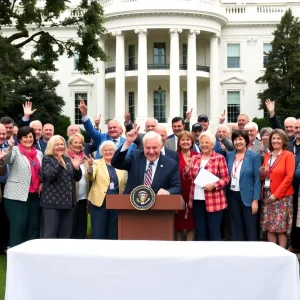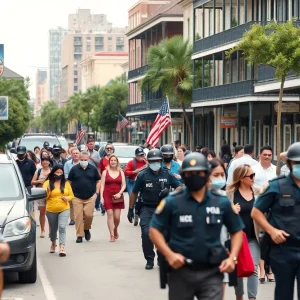Kansas City Dreams of Efficient Transit to the Airport
In the heart of the Midwest lies Kansas City, a vibrant city with a dream that has spanned decades: an efficient and reliable train service connecting the city to its airport, Kansas City International Airport (KCI). Yet, despite the fervent hopes of locals since KCI opened its doors in 1972, that dream remains largely unfulfilled. From ambitious plans that included a futuristic monorail to hovercraft, Kansas City has seen many transportation ideas come and go.
The Longing for Transit Solutions
Transportation advocates have long expressed concern over the limited public transit options available to KCI. Currently, travelers primarily rely on a new public ride-share service and a solitary RideKC bus route, known as the Boardwalk-KCI 229, which operates only once an hour and takes a full hour to make the journey. With the 2026 Men’s World Cup fast approaching, Kansas City’s transit challenges have become even more pressing.
A recent assessment by FIFA placed Kansas City as 15th out of 16 host cities in North America concerning transportation connectivity and mobility. As Guadalajara took the last spot, city officials view this as a wake-up call and an opportunity to revitalize their transit system.
A Vision for Change
Mayor Quinton Lucas has emphasized that Kansas City will not let this opportunity slip away. However, so far, progress has been slow. Last year, City Manager Brian Platt mentioned ambitions for an airport rail connection, igniting hopes among residents. His assertion that “fixed route transit between the airport and downtown will unlock new opportunities” resonated with many.
However, as time has passed, the realization has set in that a rapid rail transit solution is a lengthy endeavor, and the city may not have the necessary infrastructure in place for the World Cup. While Platt hinted at a possible rail opening before the tournament, logistical delays on rail cars have raised skepticism.
Temporary Fixes on the Horizon
As local organizers gear up for the World Cup, they are pulling plans together for a temporary transit solution, which decidedly will not feature rail. Instead, the focus is now on increasing the bus fleet and coordinating with ride-share and rental car operations to ensure a smooth transition for the flood of fans expected in June and July of 2026. Pam Kramer, CEO of the local World Cup organizing committee, shared that they are working hard to lease additional buses to meet the anticipated transportation demands.
The Concerns of Advocates
Despite plans for temporary fixes, local transit advocates are worried about the long-term implications. David Johnson, chair of the Kansas City Regional Transit Alliance, fears that there may be a substantial investment in temporary solutions with no lasting benefits. He questions the city’s commitment to enhancing public transportation beyond the World Cup festivities.
Even as discussions continue about what a well-planned transit system might look like in Kansas City, some officials have voiced the need to prioritize rail transit for areas that will greatly benefit local residents, over simply connecting to the airport.
Looking to the Future
With city officials setting out to solicit consultancy services for a more significant transportation overhaul, Kansas City residents hope for genuine progress. As of now, the plans are still under evaluation, leaving many wondering when and if a concrete plan will make its way to the public.
In a twist of fate, Kansas City’s transportation history bears a resemblance to alternative transit methods of the past — from hovercrafts to monorails, ideas that seemed brilliant but ultimately vanished into memory. Today, the dream of a seamlessly connected Kansas City continues, with residents watching closely to see how their city leaders will tackle this age-old challenge.
As Kansas City stands at a significant crossroads in its transportation journey, one thing is clear: the clock is ticking towards the 2026 World Cup, and so much more is at stake beyond the match schedules—it’s about creating a legacy of connectivity for years to come.







